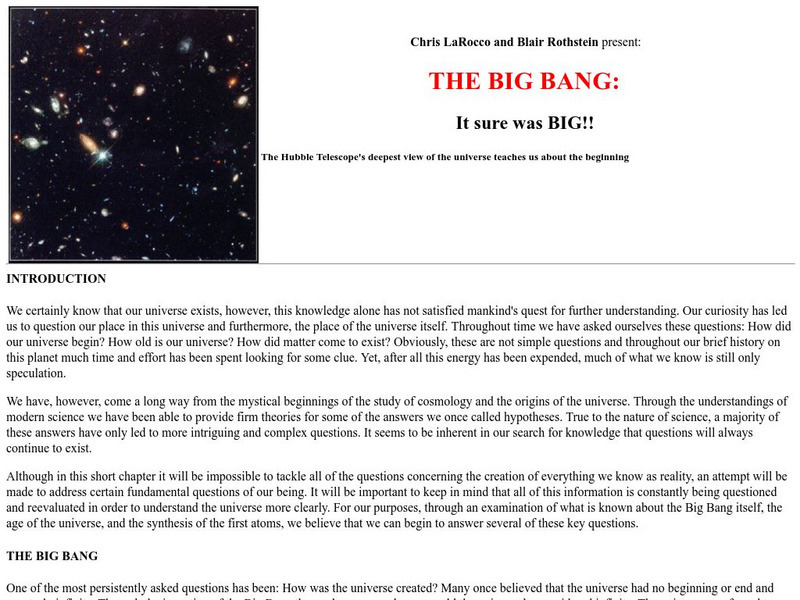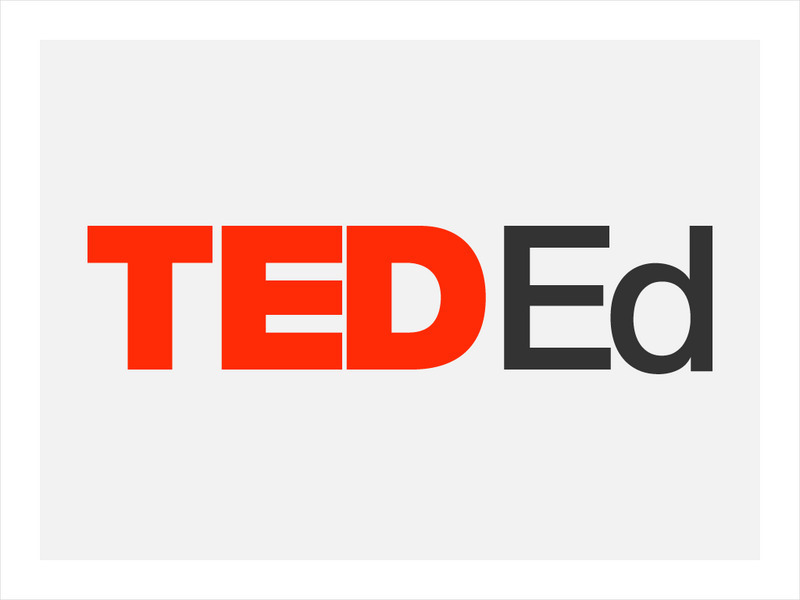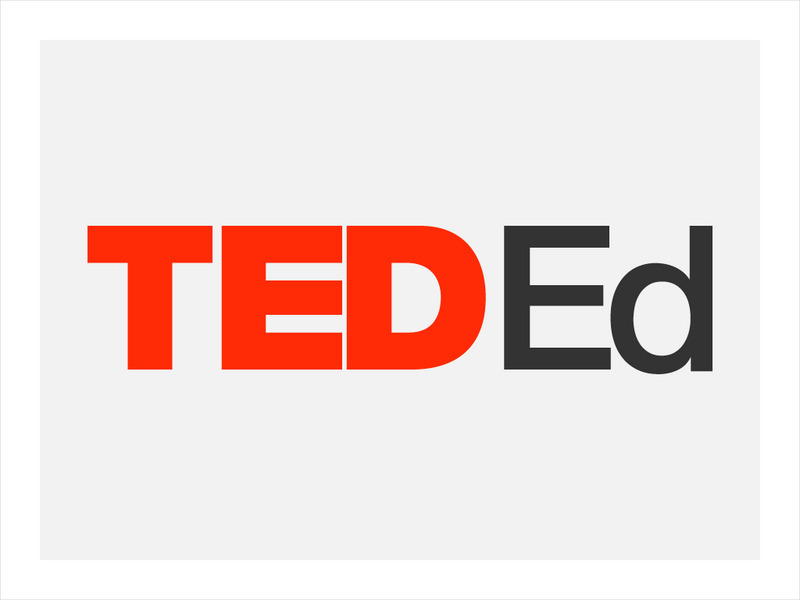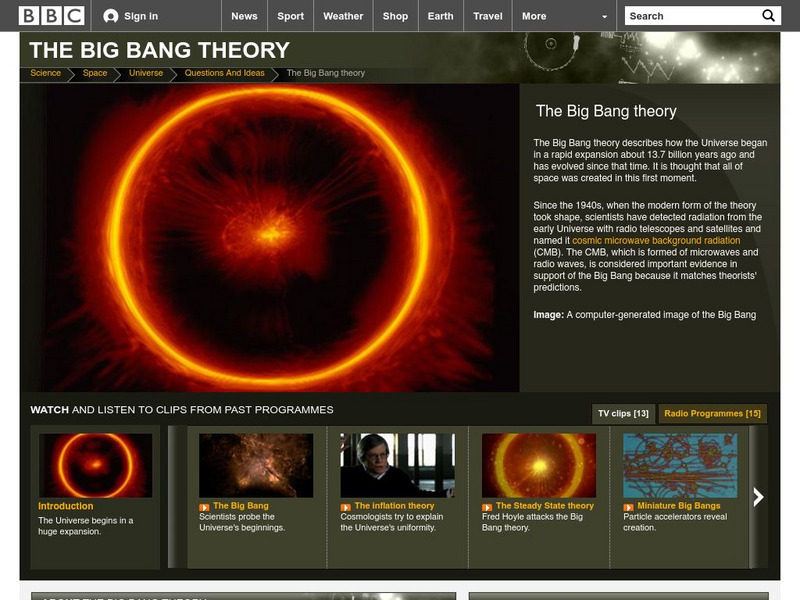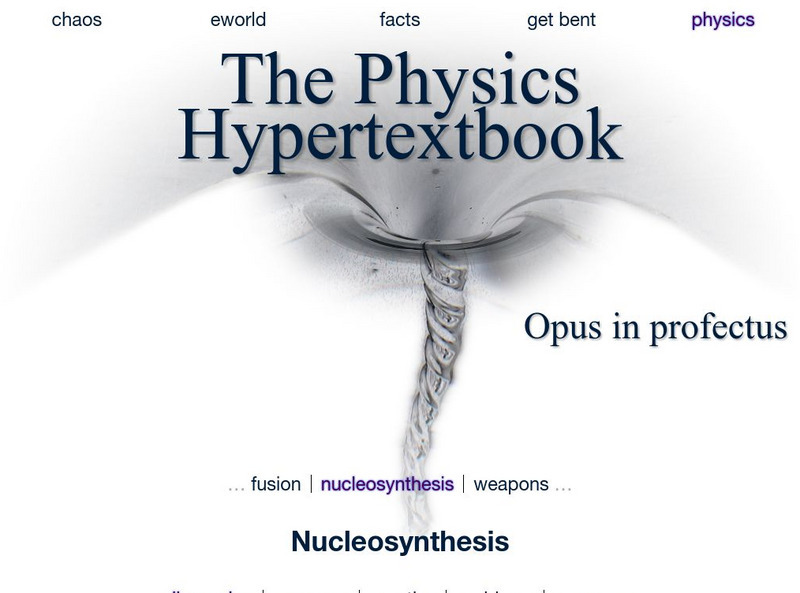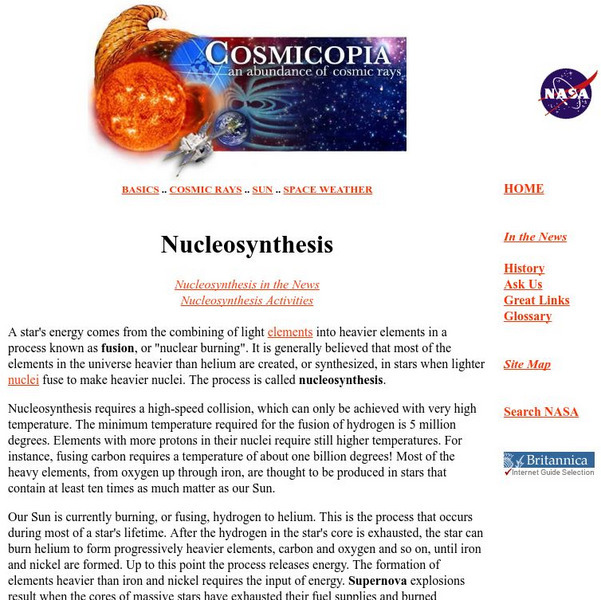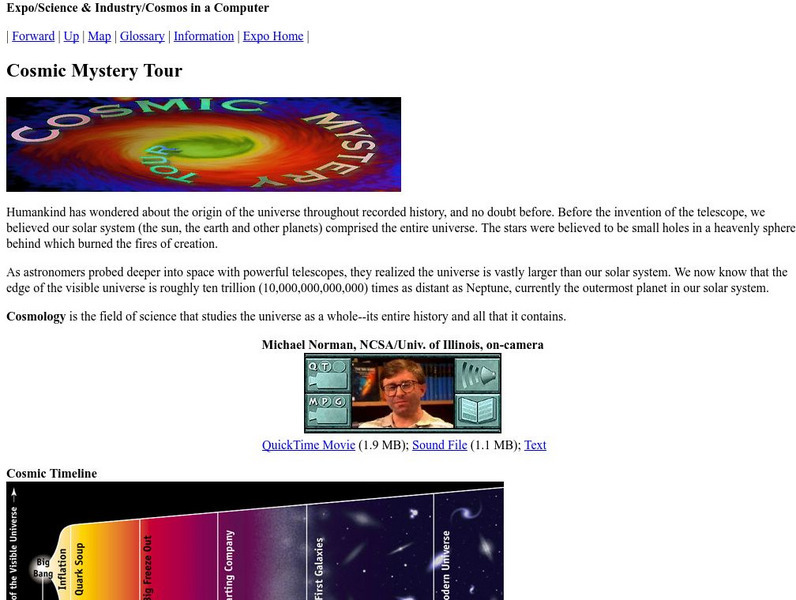National Science Foundation
National Science Foundation: Astronomy and Space: Research Overview
Explore some of our most fundamental questions about space exploration with this research overview collected by scientists at the National Science Foundation. Additionally, experience deep space first-hand with telescope interactives.
University of Michigan
University of Michigan: The Big Bang It Sure Was Big!
A detailed examination of "what is known about the Big Bang itself, the age of the universe, and the synthesis of the first atoms."
Story Behind the Science
Story Behind the Science: Story of Cosmic Microwave Background [Pdf]
Article describing the history of the scientific research that led to the discovery of cosmic background radiation, which, according to the Big Bang Theory, is linked to the origin of the universe.
TED Talks
Ted: Ted Ed: The History of Our World in 18 Minutes
Backed by stunning illustrations, David Christian narrates a complete history of the universe, from the Big Bang to the Internet, in a riveting 18 minutes. [17:40]
Khan Academy
Khan Academy: Infographic: Timeline
An all-encompassing historical timeline from the Big Bang Theory to modern-day. PDF is available to download.
Utah Education Network
Uen: Where Did the Matter in the Universe Come From?
Students use various articles about how atoms are made and spread throughout the universe starting with the Big Bang. They will study the articles as groups and will then present their information to the class.
Scholastic
Scholastic News: How Old Is the Universe?
The European Space Agency recently released a map of the oldest light in the universe. This article describes what scientists have learned from this discovery and the questions that it raises.
American Museum of Natural History
American Museum of Natural History: O Logy: How Did the Universe Begin?
Bite-size introduction to two scientists-Hubble and Lemaitre-who played key roles in formulating the theory of the origin of the universe known as the big bang. Includes an interactive timeline on which you can plot out the approximate...
Society for Science and the Public
Science News for Students: The Hottest Soup in New York
Describes scientific research completed at the highest temperature ever recorded, 4 trillion degrees Celsius. This research could further understanding of the origin of the universe.
TED Talks
Ted: Ted Ed: Three Ways to Destroy the Universe
They say all things must come to an end. Does this include the universe? This video explores current theories on the end of everything. [6:17]
TED Talks
Ted: Ted Ed: What Light Can Teach Us About the Universe
Pete Edwards outlines the six unique messages that light carries which, when put together, disclose a stunning amount of information to astronomers about the universe. [4:07]
PBS
Pbs Teachers:origins Back to the Beginning
This hour long program by NOVA is split into six segments and examines a issues influencing scientists' current understanding of how the universe was formed. This includes The Big Bang and its lasting effects.
PBS
Nova: The Origins Game
This resource provides information about the origin of the universe, the earth and the organisms that live here. You will also be challenged to identify the geographic areas where origins research is taking place.
Smithsonian Institution
National Air and Space Museum: Explore the Universe
This resource explores the history of the universe and its explorers.
Australian Museum
Australian Museum: The Earth: The Universe
Basic information about the universe, its origin and composition. Also includes information about galaxies, stars, and the sun.
BBC
Bbc: Origin of the Universe
Try this introduction to ideas about how the universe began and how it might end. Topics include; the big bang and its echoes, antimatter, and inflation/expansion of the universe.
Physics Hypertextbook
The Physics Hypertextbook: Nucleosynthesis
Understand the process of nucleosynthesis, and how the elements formed in the creation of the universe.
NASA
Nasa: Cosmicopia: Nucleosynthesis
NASA's Cosmicopia illustrates the process of element creation in the universe.
TED Talks
Ted: Ted Ed: Three Ways the Universe Could End
Do we know how our universe is going to end? Venus Keus explores cosmologists' three possible scenarios.
University of Illinois
University of Illinois: Cosmic Mystery Tour
This multimedia tour is extremely dense with information about the origin of the universe. There are videos and simulations to assist with understanding, but it is definitely for advanced students.
Utah State Office of Education
Utah State Office of Education: How Did the Universe and Solar System Develop?
Explore this unit to learn how the universe began. Through illustrations, videos, and classroom activities, gain an understanding of how stars help with the formation of elements.
PBS
Nova: History of the Universe
This interactive timeline provides information on the big bang as well as other major events of universe evolution. It also provides predictions about the universe's future.
Khan Academy
Khan Academy: Quiz: Welcome to the Big History
This quiz tests you on the overarching themes of Big History which links different areas of knowledge into one unified origin story.
Khan Academy
Khan Academy: Quiz: Looking Back
Quiz yourself on the origins of the universe and life.



